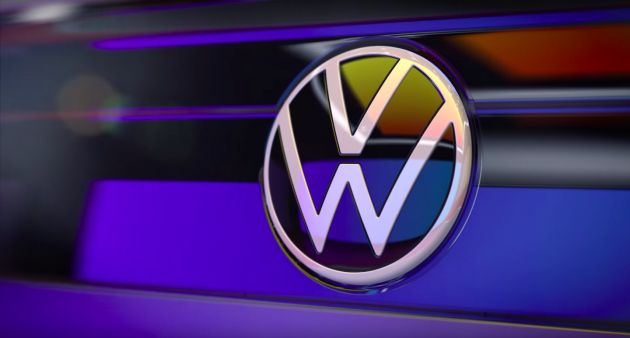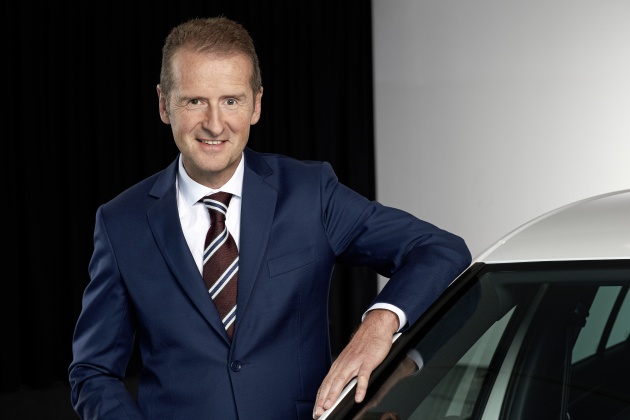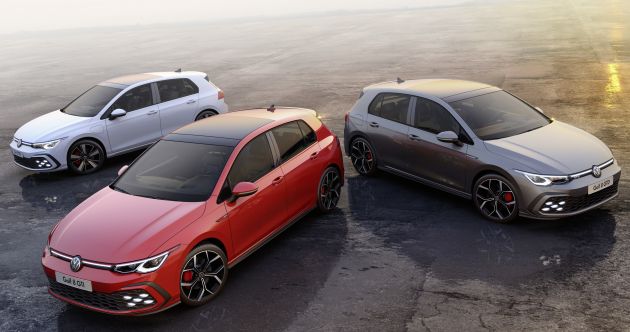More news from VW, but this one is positive. The Volkswagen Group’s fiscal year 2019 has concluded with improved financial results in almost all brands, and Europe’s largest carmaker has branded last year as a “very successful year” but dark clouds lie ahead.
“2019 was a very successful year for the Volkswagen Group. We have laid vital groundwork for all relevant changes. 2020 is a very difficult year. The corona pandemic presents us with unknown operational and financial challenges. At the same time, there are concerns about sustained economic impacts. We will succeed in overcoming the corona crisis by pooling our strengths and with close cooperation and high morale in our group,” said VW chairman Herbert Diess.
At 88.4 billion euros, Volkswagen Passenger Cars’ 2019 sales revenue was 4.5% higher than the previous year. Operating profit before special items increased to 3.8 billion euros (from 3.2b), and VW says that improvements in product mix and price positioning compensated for lower sales, launch costs and forex effects.
The figures weren’t so good at Audi – which includes Lamborghini and Ducati brands – as sales revenue declined to 55.7 billion euros (from 59.2b) in FY2019. The reason for this was the group’s internal relocation of the multibrand sales companies. Operating profit amounted to 4.5 billion euros (from 4.7b) while operating return on sales was 8.1%.
In contrast, sales revenue at Skoda increased by 14.5% to 19.8 billion euros, partly due to initial consolidation following the assumption of regional responsibility for India. Operating profit improved by 0.3 billion euros to 1.7 billion euros. Operating return on sales stood at 8.4%, up from 8%.
Similarly, Spanish brand Seat continued its upward trend, with a 12.7% increase in sales revenue to 11.5 billion euros. Operating profit rose to 445 million euros (from 254m), also a new record. The brand’s operating return on sales improved from 2.5% to 3.9%.
From the mass market, we move to the luxury cash cows of the German giant, and what productive cattle they are. Bentley generated sales revenue of 2.1 billion euros in 2019, exceeding the prior-year figure by 35.1%. Operating profit improved to 65 million euros (from negative 288m) driven by higher volumes, as well as by cost savings from the ongoing efficiency programme together with mix effects and forex. The brand’s operating return on sales increased to 3.1% (from –18.6%).
Porsche’s revenue increased by 10.1% to 26.1 billion euros (from 23.7b) in FY2019. Operating profit before special items improved by 2.4% year-on-year to 4.2 billion euros. Operating return on sales before special items was 16.2% (from 17.4%). The dieselgate issue incurred special items of 0.5 billion euros in the fiscal year.
As for commercial vehicles, Volkswagen Commercial Vehicles collected revenue of 11.5 billion euros (from 11.9b) and operating profit to 510 million euros (from 780m), Scania managed revenue of 13.9 billion euros (from 13.0b) and operating profit of 1.5 billion euros (up 24.8%), while MAN Commercial Vehicles saw revenue climb to 12.7 billion euros (up 4.6%) and operating profit jump to 402 million euros (from 332m).
Lastly, sales revenue of Volkswagen Financial Services in the reporting year amounted to 38.0 billion euros, an increase of 15.8% year-on-year. Operating profit rose by 13.3% and hit a new record of 3.0 billion euros.
As for what lies ahead, Wolfsburg couldn’t set a target for FY2020. “The spread of coronavirus is currently impacting the global economy. It is uncertain how severely or for how long this will also affect the Volkswagen Group. Currently, it is almost impossible to make a reliable forecast. We are making full use of all measures in task force mode to support our employees and their families and to stabilise our business,” said Frank Witter, group board of management member for finance/IT.
Europe is the new epicentre of the global coronavirus pandemic, and this has led to VW’s announcement that it will be suspending production at its European plants for an initial two weeks. The closure applies to production facilities in Wolfsburg, Emden, Dresden, Osnabrück, Zwickau, Bratislava (Slovakia), Pamplona (Spain) and Palmela (Portugal) are affected, as well as the VW Components plants at Brunswick, Chemnitz, Hanover, Kassel, Salzgitter and SITECH.
“The spread of coronavirus in Europe is increasingly having an adverse impact on the demand situation. At the same time, it is becoming increasingly difficult to supply our plants with outsourced parts. We are convinced that this will also be in the interests of our employees who are becoming increasingly concerned about the spread of corona,” said Ralf Brandstätter, COO of the Volkswagen Passenger Cars brand.
The Robert Koch Institute, Germany’s disease control and prevention agency, moved its coronavirus threat risk for the country from “moderate” to “high” this week. As of yesterday, Germany has over 9,200 confirmed Covid-19 cases, including 24 deaths.
Research Volkswagen Cars at
Related Cars for Sale on
Source: Read Full Article

























